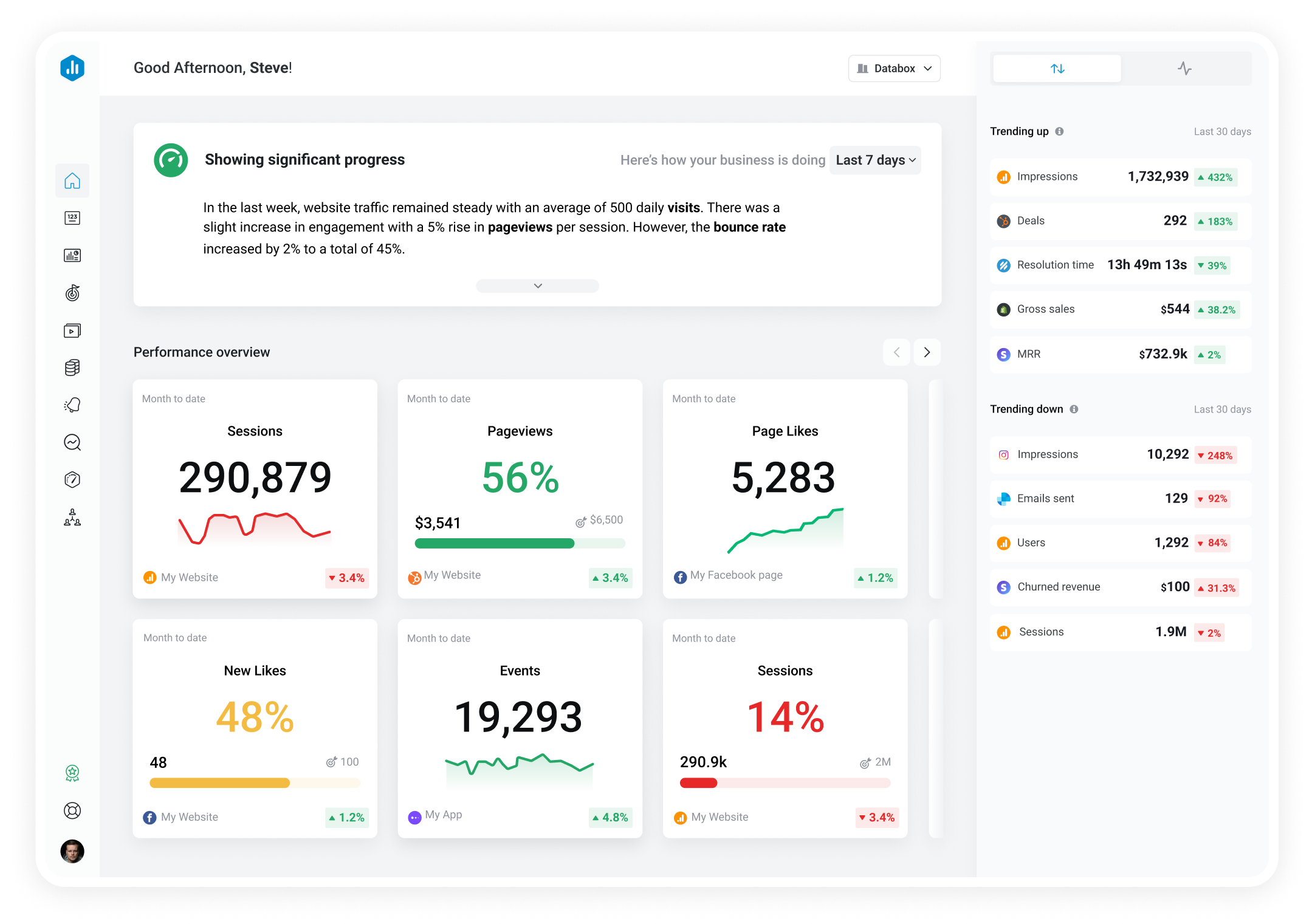Track all of your key business metrics from one screen
GET STARTED
 QuickBooks
Paid Invoices Amount
QuickBooks
Paid Invoices Amount The Paid Invoices Amount metric in QuickBooks represents the total amount of money received from customers for paid invoices. It is a critical measure of the company's cash flow and revenue growth.
With Databox you can track all your metrics from various data sources in one place.

Used to show a simple Metric or to draw attention to one key number.
Databox is a business analytics software that allows you to track and visualize your most important metrics from any data source in one centralized platform.
To track Paid Invoices Amount using Databox, follow these steps:
 Goals
Goals Scorecards
Scorecards Metric Digest
Metric Digest Metric Builder
Metric Builder Data Calculations
Data Calculations Performance Screen
Performance ScreenThis dashboard helps to keep high-level tabs on your overall financial health, and quickly identify points of friction slowing your success.


Quickbooks dashboard template provides you with insights about cash flow, bank accounts, sales and expenses enterred in Quickbooks to stay on top of your business.

